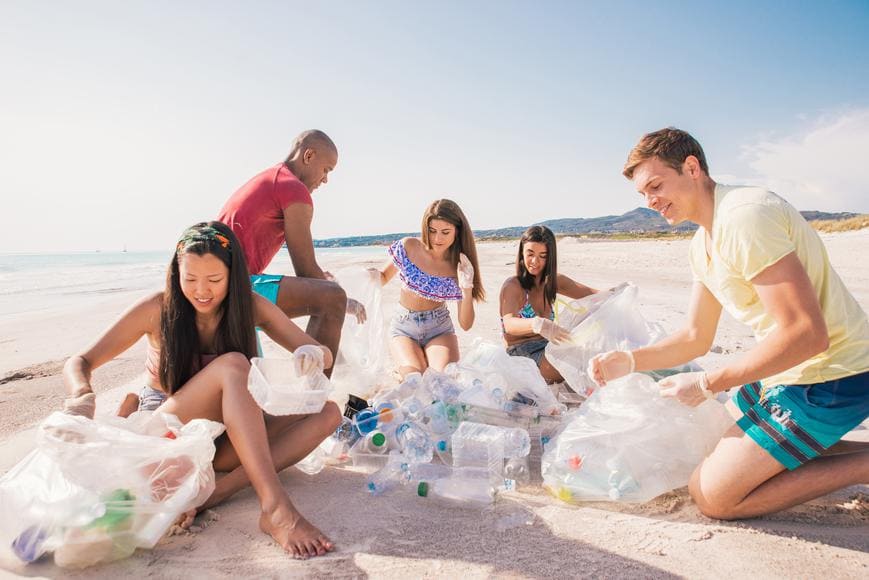Join a Beach Cleanup Day: Help keep beaches clean by participating in a beach cleanup day
Participating in a beach cleanup day is a hands-on way to contribute to environmental conservation and protect marine life. These events not only clear away harmful debris from our beautiful coastlines but also raise awareness about pollution and its effects. By joining a beach cleanup, you’re taking a stand against waste and helping restore the natural beauty of our beaches for future generations. Let’s delve into the importance of beach cleanups, how to get involved, and the broader impact these efforts have on our environment.

The Importance of Beach Cleanups
Beaches are essential ecosystems that provide habitat for diverse wildlife, offer recreational opportunities, and contribute to our mental well-being. However, they are often littered with trash and pollutants, which pose significant risks to marine life and human health. Beach cleanups serve multiple purposes: they help to remove harmful debris, educate the public about litter, and foster a sense of community. Moreover, keeping beaches clean supports tourism and protects the local economy, as clean beaches attract more visitors and encourage outdoor activities. The simple act of cleaning a beach can have long-lasting effects on the ecosystem, as it helps to reduce the amount of waste that enters the ocean, which can ultimately devastate marine life.
How to Get Involved
Getting involved in a beach cleanup is easier than you might think. Start by researching local organizations or community groups that host regular cleanup events on the beaches near you. Many of these events are open to the public and provide all the necessary tools, such as gloves and trash bags. You can also check social media platforms and community boards for announcements about upcoming cleanups in your area. If you’re interested in taking it a step further, consider organizing your own beach cleanup. Gather friends, family, or colleagues and set a date, time, and location. Remember to promote the event through social media or local community centers to attract more volunteers. Here are steps to follow to successfully organize a beach cleanup:

-
- Choose a beach location.
- Select a date and time that works for your group.
- Reach out to local organizations for support and to provide necessary supplies.
- Promote your event to attract more participants.
- Document the event through photos and report the amount of trash collected to raise awareness.

The Broader Impact of Beach Cleanups
While the immediate goal of beach cleanups is to remove trash from coastal areas, the broader impact extends far beyond aesthetics. Cleanup efforts contribute to a significant reduction in pollution, which not only benefits oceanic wildlife but also promotes healthier human interactions with the environment. Clean beaches provide safe spaces for recreational activities and preserve natural habitats that support diverse species. These activities can also serve as a platform for educating the community about responsible waste disposal and the effects of littering. By raising awareness surrounding the importance of preserving coastal environments, beach cleanup events contribute to a culture of sustainability and environmental stewardship that resonates across communities.
Benefits of Participating in Beach Cleanup Days

Participating in beach cleanup days offers numerous personal and community benefits. Here are some reasons why you should consider joining:
- Community Engagement: Beach cleanups foster bonding and collaboration among participants.
- Physical Activity: Cleaning up provides a healthy way to engage with nature while getting exercise.
- Awareness: You gain first-hand experience with the challenges facing our oceans and wildlife.
- Empowerment: Making a positive impact instills a sense of pride and accomplishment.
- Networking: Opportunities to meet like-minded individuals dedicated to environmental causes.
Conclusion
Joining a beach cleanup day is a powerful way to contribute to the health of our planet while enjoying the natural beauty of our shores. By participating, you help protect marine ecosystems, promote community involvement, and raise awareness about critical environmental issues. Every piece of trash collected fosters a cleaner, safer, and more sustainable environment for both wildlife and future generations. Whether you choose to join an existing event or organize your own, your efforts are invaluable. Let’s work together to ensure our beaches remain pristine and vibrant for years to come!
FAQs
1. What should I bring to a beach cleanup?
It’s a good idea to wear comfortable clothing, sun protection (sunscreen and hats), gloves, and sturdy shoes. If you have reusable bags, bring them along to collect any litter you find.
2. Are beach cleanups suitable for families?
Absolutely! Beach cleanups are great family-friendly activities, and they can help instill environmental awareness in children from a young age.
3. Can I participate in beach cleanups if I’m not physically strong?
Yes! Beach cleanups can often be adjusted to suit all levels of ability. You can focus on collecting smaller items or participate in a more supervisory role to encourage others.
4. How often do beach cleanup events occur?
Frequency can vary depending on location, but many organizations host cleanups monthly or seasonally. Check with local environmental groups for specific dates and events.
5. What happens to the trash collected during cleanup events?
Typically, the collected trash is sorted for recycling or disposal according to local waste management guidelines. Many organizations aim to recycle as much waste as possible to minimize environmental impact.
